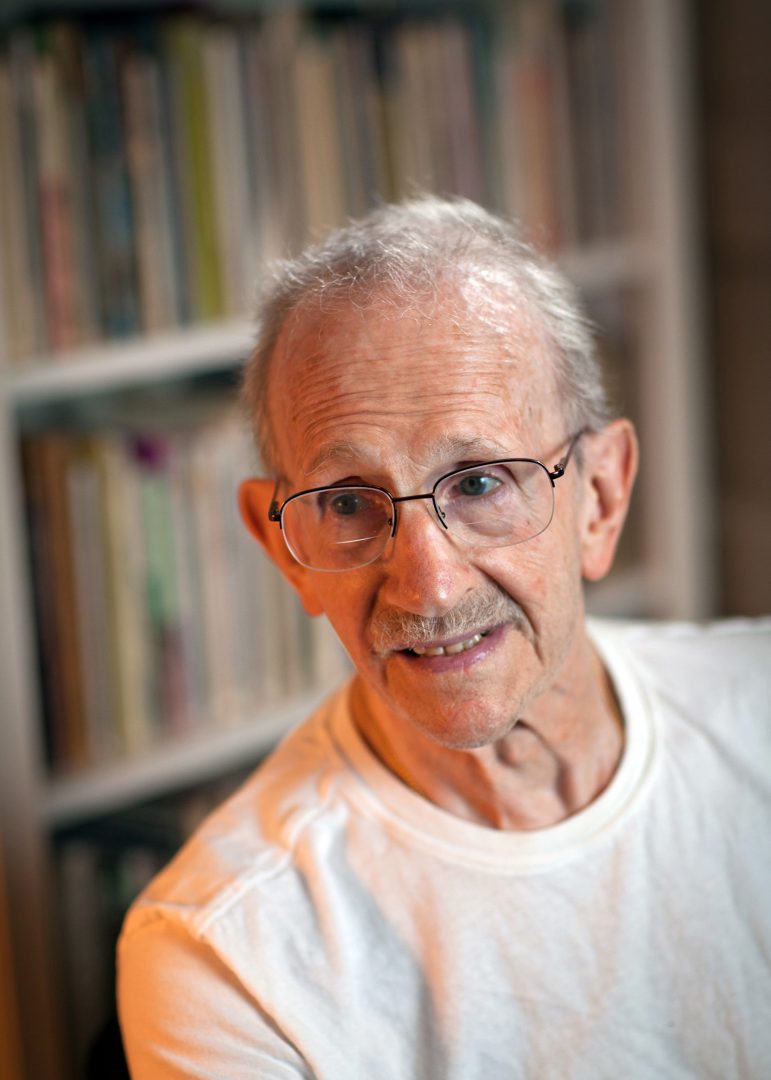A global poetry icon known for his affinity for the Central Valley and revered for his award-winning work, former U.S. poet laureate and Fresno State Professor Emeritus Philip Levine, died from pancreatic cancer Saturday in his Fresno home. He was 87.
Levine, recognized as one of the best-known and most highly-honored American poets, won the Pulitzer Prize for Poetry in 1995 for “The Simple Truth” and the National Book Award in 1980 and 1991. He served as U.S. poet laureate from 2011-12. He published 16 books of poems as well as several volumes of translations and two collections of essays.
“It’s hard to be a writer in this creative writing program without being influenced by Phil,” said Jefferson Beavers, a graduate of the university’s Master of Fine Arts creative writing program and communications specialist.
Beavers said Levine was “foundational” in establishing the creative writing program at Fresno State. He, along with former Fresno State professors Peter Everwine and Chuck Hanzlicek, founded the program within the department of English, where Levine taught for more than 30 years.
“He and his colleagues from the early days really are foundational to this community of writers that we have in the Central Valley,” Beavers said. “As someone who didn’t know him very well, I can still feel his impact on me as a student and as a member of that community.”
Many of Levine’s poems focused on working-class Americans. Levine grew up in Detroit to immigrant parents and worked industrial jobs throughout high school.
Levine had a penchant for writing honest poetry that impacted 20th century contemporary American works.
“His work is very plain spoken, heartfelt. It comes from the lived experiences of a worker, of someone who knows what it is to put his hands on work,” Beavers said. “I think that that voice that he took up many years ago and carried through his many years as a teacher and poet really celebrates the American working man, and that kind of sensibility to understand what it’s like close to the earth, close to work. That’s probably his greatest legacy in terms of poetry.”
Levine influenced thousands of young writers in his 30-plus years as an educator. Known for his bluntness and wit, Levine’s editing helped turn students’ works into gems.
Phyllis Brotherton, a former Levine student, said the famed poet did much more than assign and discuss texts. He talked honestly with his students about the pros and cons of graduate writing programs and told many of his life experiences with his mentors and other famous writers. He provided guidance to burgeoning writers.
“Taking the graduate master class with Philip Levine was a life-changing experience for me on many levels and proved to me that he was the great mentor that I had always heard about,” Brotherton said. “I will never forget his words of wisdom, though he would not have liked it characterized in this way, I’m sure.”
“He’s a very generous mentor who really spent hours and hours and much energy to nurture that one line or that one phrase, in someone’s draft that was destined for greatness. I’ve heard at least one faculty member say that Phil had kind of an X-ray vision when he was reading a poem, he was to reading a poem as a surgeon would be to reading an X-ray. He could really zoom in on the thing that was working, and I think that ability as a reader really set him apart. He bestowed that really generous advice on so many people throughout the years.”
Levine’s legacy also lives on through the Philip Levine Prize in poetry, a national award offered through Fresno State.
Established in 2001 by the MFA program, the prize receives between 600 to 700 submissions and offers a $2,000 prize and publication and distribution by Anhinga Press.
“His legacy really directly supports up-and-coming poets,” Beavers said. “His legacy definitely lives on in that and is a cornerstone of our program that directly supports young poets and emerging poets all over the country.”
Beavers said Levine’s legacy continues to expand on the Fresno State campus as the Master of Fine Arts program offers workshops and guest lectures from speakers, faculty and former students who were influenced by Levine.
“His legacy and impact on his former students come back to those people, when they come here to read and share their expertise,” Beavers said. “His stamp on poetry in our program is really longstanding. You can trace from Phil forward, and you can find those connections from poet to poet, and that’s something that was really exceptional. We really wouldn’t have a creative writing program without them, so the impact they have on Fresno is huge and lasting.”
Even though Levine retired in 1992, he was still an active member of the Fresno State community.
“Phil Levine was a gifted poet and teacher whose legacy is clearly seen in his many Fresno State students who themselves went on to be teachers and published poets,” said University President Joseph Castro. “As a plain-speaking, working-class poet, his sensibility resonated with Valley students, who gravitated to him as a teacher and mentor. We cherish his memory and will miss his poetic voice.”




